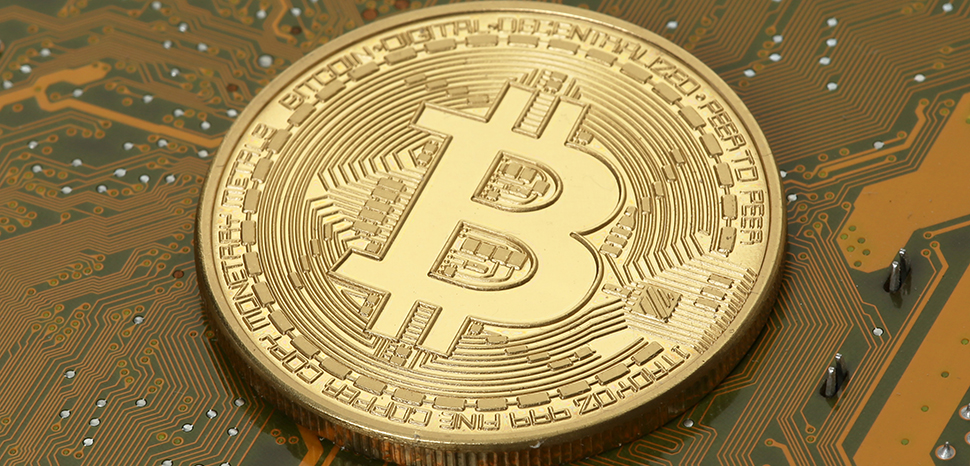Both empirical realities and existing predictions show the usefulness and potential of Bitcoin as an instrument of national power in the practice of statecraft and also as a versatile element that could serve various roles under confrontational geopolitical conditions. However, it is unclear at this point if BTC and similar nonstate cybercurrencies could influence the fate of global hegemony. The historical record shows a strong symbiotic connection between the architecture of international monetary systems and political realities related to the global balance of power and the systemic structure of polarity. Specifically, major reserve currencies have always been issued by hegemonic great powers and underwritten by the strength that those superior positions confer. Such has been the case since the days of the Athenian drachma, the Roman denarius and the Byzantine solidus to the US dollar. In this regard, could the disruptiveness of unofficial cryptocurrencies like BTC have implications for the evolution of hegemony and the redistribution of the global correlation of forces in the coming decades? Admittedly, there is no hard conclusive evidence at this point but, from a long-range perspective, their existence is a relatively recent phenomenon, and the ultimate extent of their conceivable geopolitical ramifications remains unknown. After all, the arc of the so-called longue durée brings both predictable cyclical patterns and wild cards whose behaviour is hard to anticipate. Therefore, the formulation of an answer requires the practice of strategic foresight to assess multiple hypothetical possibilities and to determine how each could reshape hegemony. In order to do so, the present analysis integrates the scrutiny of forecasts, scenarios and perspectives. In particular, it seeks to identify the plausible implications of said cybercurrency for the hegemonic position still held by the United States as the leading superpower and the supremacy of the US dollar as the world’s top reserve currency.
BTC’s potential as a major reserve currency
The idea of a major global reserve currency not controlled by any national state is not new. In the context of the Bretton Woods conference, British economist John Maynard Keynes proposed the idea of launching a supranational monetary unit, called “Bancor,” which would be backed by gold, a plan that was ‒ unsurprisingly ‒ not welcomed by Washington. No sane statesmen would have missed the opportunity to achieve global monetary and financial superiority as a war booty. In the post-Cold War era, the rise of Bitcoin endorses once more the hypothetical scenario of a de-nationalized global currency that cannot be unilaterally controlled in accordance with the particular interests of a single state. Hence, some observers believe that the dollar’s hegemonic position will not be inherited by another national currency, but by an unconventional new generation of monetary assets and ‒ as the most emblematic cybercurrency ‒ Bitcoin could become one of the largest reserve currencies. In fact, since it was created, Bitcoin’s staunchest supporters have entertained the libertarian dream of a borderless currency that is freely available to everybody as an alternative to fiat money, seen as inherently inferior and problematic in all meaningful respects.
The introduction of stateless cryptocurrencies like BTC represents a potential catalyst for the renewal of the global monetary order or, at the very least, for a growing diversification. In theory, a virtual currency like Bitcoin could evolve and potentially act as an item that performs all the roles associated with money on a global scale: medium of exchange, unit of account and store of value. In fact, Bitcoin’s promoters contend that it represents a game changer that offers many advantages over traditional currencies and even gold: algorithmic programming, transnational circuits and apolitical governance. Furthermore, as its organic financial ecosystem has grown, it has attracted the involvement of mainstream economic agents ‒ including online retail business platforms, start-up companies, traditional financial firms and exchanges ‒ increasing its projection well beyond the narrow confines of marginal sectors. At some point, BTC could gain a much higher degree of traction for all sorts of cross-border payments, even though it would have to face meaningful regulatory obstacles. Such development would challenge not just the dollar’s hegemony, but also the legitimacy of other economic paradigms such as fiat money and fractional reserve banking.
Yet, the idea that BTC will become a major reserve currency should not be taken for granted. There are reasonable doubts motivated by technical, economic and political obstacles. Since Bitcoin’s structural design determines that no more than 21 million units can exist, this limited money supply does not offer the volume that a reserve currency would need to play a much larger role in international commercial or financial transactions through systemic platforms. Despite the hype around them, unofficial cryptocurrencies are innovations still in their developmental infancy and none of them has been technically designed to act as a universal currency. Another important factor is the volatile fluctuations of Bitcoin’s exchange rates. Said instability is problematic because rather than an item that performs reliably as international money, Bitcoin behaves more like an unstable speculative asset with no intrinsic worth that is traded for quick profits and usually exchanged for more traditional forms of wealth. Notably, its sceptics even argue that Bitcoin might trigger a speculative bubble whose eventual collapse would mirror the proportions and trajectory of the ‘tulipmania’ speculative frenzy that took place in the Dutch Golden Age, back when Amsterdam operated as the world’s top financial nerve center.
However, perhaps the most important difficulty is that BTC lacks the political support of a powerful state. In order to reach a much higher degree of international projection, it would require a measure like its adoption as some sort of anchor for a hard currency, either national or regional. Without such ingredient, its strength would be feeble. No currency in world history has become dominant on a global scale without the active backing of a great power. In contrast, as the American private intelligence firm STRATFOR observes, the dollar is underwritten by the full national power of the United States, including its military capabilities, manpower, economic wealth, infrastructure, institutional systems, land, culture and infrastructure. Needless to say, Bitcoin does not have anything even remotely comparable. In addition, most national states are unlikely to relinquish the benefits that come with their sovereign ability to control the implementation of their own monetary policies.
In a nutshell, the predictions about a widespread global adoption of Bitcoin are, at best, premature. The potential of any first-generation cybercurrency ‒ including BTC ‒ to become a major reserve currency in the near future is regarded as negligible by most experts. Specifically, Bitcoin is no suitable candidate to overtake the American dollar any time soon. In the best-case scenario, BTC could be a minor reserve currency. However, the prospect of their increased international presence in the long run could incrementally downsize the strategic advantages that the US gets as a result of the dollar’s hegemonic position and even provide an instrument of statecraft to advance a partial de-dollarization. As such, their potential condition as alternative or secondary reserve currencies is worth considering, especially in an environment of heightened financial and geopolitical turmoil.
BTC as a vector of a counter-hegemonic grand strategy
The growing international projection of decentralized cybercurrencies like Bitcoin is a trend that could create a much more fragmentary, horizontal and plural global monetary order. Another important systemic trajectory that needs to be highlighted is the rising great power competition in the strategic chessboard of money and finance. Considering their disruptive nature, crypto-assets have the theoretical potential to challenge the position held by the dollar as the hegemonic currency since Bretton Woods and the collective West’s ability to implement coercive sanctions. They could therefore be harnessed strategically by revisionist great powers that seek to encourage de-dollarization, further multipolarity and develop parallel monetary and financial systems. Some observers warn that the next major hegemonic confrontation might not involve military conflict in traditional battlefields, but competing financial structures. In turn, certain experts hold that, despite its ideological hostility to BTC’s libertarian background, China might attempt to manipulate BTC in as an unconventional weapon in an attempt to target the dollar’s prestige and challenge American global financial leadership. Such possibility has evident implications for American national security. These concerns are shared by prominent members of US high finance elite. American hedge fund billionaire Ray Dalio has warned about an eventual “capital war” as one of the facets of the increasingly complex rising rivalry between China and the US.
Interestingly, Professor Nicholas Ross Smith argues that, as a great power that intends to rewrite the architecture of the global system, Russia could also be interested in the counter-hegemonic properties of Bitcoin as an instrument of statecraft that might foster a more multipolar correlation of forces. Moscow cannot directly compete with the US in the field of money, but it can rely on stateless cryptocurrencies as weaponized asymmetric vectors of grand strategy to diminish the international strength of the greenback. Said measure would reduce the power and influence of the US in the system of global financial and monetary governance and worsen American financial imbalances, including unsustainable levels of indebtedness. Moscow could even become a hub for independent cryptocurrencies like BTC. Moreover, it has been noted that the reassessment of Russia’s initial reluctance to embrace cryptocurrencies towards a more permissive attitude is likely related to the Kremlin’s strategic interest in alternatives worth leveraging to weaken the dollar. Another strategic advantage of nonstate cryptocurrencies for Russian national interests would be their pragmatic applications for compensating the prospect of an overreliance on Chinese financial platforms connected to the renminbi.
However, it is not entirely clear is such course of action could achieve the expected outcome. There are limits that China and/or Russia would have to be overcome in order to sponsor a much larger presence of Bitcoin in cross-border payments, including the need to develop an accompanying financial infrastructure. Another disadvantage for Bitcoin to achieve a much stronger international role is this cryptocurrency’s high levels of financial volatility. Although this strategy could be helpful to avert financial and monetary arteries controlled by the United States, it is unlikely to displace the dollar. At best, it could partially erode its position, but not sink the greenback.
BTC as an element that could strengthen ‘Pax Americana’
In an article for Bitcoin Magazine, Luke Mikic puts forward the counterintuitive forecast that, rather than weakening it ‒ as conventional wisdom would suggest ‒ the growing monetization of BTC will actually extend the lifespan of the US dollar as the hegemonic reserve currency. In a context shaped by both the accumulation of structural financial problems and the rising assertiveness of revisionist states which actively seek to undermine the greenback’s global supremacy, it would make sense to back the dollar with the leading cryptocurrency in order to hasten the renewal of the global monetary order with a dollar supported by BTC under Washington’s leadership. Said analyst argues that a bitcoin-backed dollar would be able to overcome the challenge posed by the monetary alternatives being developed by China and, to a lesser extent, Russia. A report published by the Bitcoin Policy Institute states that BTC offers strategic advantages worth harnessing to strengthen the US position as the leading superpower. This source specifies that, rather than trying to suppress it, Washington should rely of BTC as an asset to support the development of technological innovation, expand capital markets, counter Beijing’s efforts to boost RMB internationalization through its digital currency and FinTech projects, project the ‘soft power’ of American values and even finance opposition to hostile regimes. This course of action would reshuffle the global monetary order ‒ with Bitcoin as its cornerstone, much like gold during the Bretton Woods era ‒ in a favorable way for the US national interests. In this way, perhaps Washington could try to avert a hegemonic transition. If successful, such event would be a major ‘black swan,’ a surprising event whose impact would be felt for generations.
BTC proliferation as a mirror that reflects a declining US hegemony
Bitcoin’s symbolical significance has not gone unnoticed. It has been noted that its creation, in the aftermath of the 2008 global financial crisis, was a phenomenon driven ‒ to a certain extent ‒ by concerns about the trustworthiness of the dollar as the dominant reserve currency. According to Financial Times columnist Rana Foroohar, the rise of Bitcoin and similar cryptocurrencies is a systemic trend that should not be interpreted as a temporary financial bubble. Instead, said commentator explains that, from a long-range perspective, the proliferation of such cybercurrencies represents a perception of growing skepticism about the US dollar ‒ as a result of mounting levels of indebtedness and unsound monetary policies ‒ and also as a symptom of a tectonic shift that favors an increasing geopolitical multipolarity. In other words, BTC symbolizes that a new global monetary and geopolitical order might be underway. Not long ago, Credit Suisse analyst Zoltan Pozsar anticipated that BTC will benefit from a new Bretton Woods, an era that will likely be shaped by a weaker dollar, a stronger renminbi, intensifying financial volatility and the growing presence of “outside money,” including gold and other commodities whose hardness is underpinned by their intrinsic value. In this interpretation, BTC and similar nonstate cybercurrencies herald a Zeitgeist of rising pluralism, both monetary and geopolitical.
BTC as a source of inspiration to develop alternatives to the USD
As explained in a previous section, the potential of Bitcoin to overtake the US dollar is limited. However, its introduction could inspire a chain reaction that leads to the creation of later generations of virtual currencies ‒ perhaps underpinned by monetary connections to hard assets such as gold and linked to their own digital financial infrastructures ‒ intended to challenge the dollar’s hegemony. For instance, James Rickards anticipates that China or Russia could hypothetically link BTC with gold as a measure to hasten the demise of the dollar. Interestingly, a report published by the Valdai Discussion Club, an influential Russian think tank, states that since cryptocurrencies are promising vehicles for cross-border settlements and payments, it is a matter of time before their current drawbacks are addressed through projects which offer innovative improvements. In a French book about the geopolitics of cryptocurrencies Nancy Gomez and Patrick Pasin even explore several hypothetical prospects of multilateral digital currencies for the BRICS bloc, the Russophone areas of the post-Soviet space under Moscow’s leadership, the Latin American members of ALBA and even for nations of Turkic heritage, amongst others. In such a way, the intellectual influence of BTC could indirectly give birth to the design of alternative creations that do have the critical mass to compete with the greenback. Based on the extrapolation of current trends, it looks like the projects of the BRICS states, ASEAN nations and Middle Eastern oil exporters ‒ along with other members of the so-called “Global South” ‒ to de-dollarize their international economic exchanges are likely to take off in the coming years and newer generations of cutting-edge digital currencies could be involved in such pursuit. Regardless of what its creators intended and even if it cannot reshuffle the global balance of power by itself, BTC may have helped release the genie from the bottle and now there is no way to put it back. Yet, it is too soon to determine categorically if the monetary Rubicon has been crossed.
Concluding Remarks
Anticipating what the future might bring is always a challenging intellectual endeavor, but the analysis of plausible developments and scenarios to identify their potential strategic ramifications and assess their feasibility can be done based on historical precedents, a multidisciplinary worldview and the extrapolation of rising trends. Together, these exploratory predictions and perspectives give credence to the prospect that BTC and nonstate crypto-assets might be consequential in more than one way for the evolution of global hegemony.
However, it would not be wise to overestimate the weight of their direct or indirect influence. By themselves, Bitcoin and similar cryptocurrencies lack the critical mass to alter the global balance of power. Yet, their pivotal significance in the eventual redefinition of the global order might be substantially increased if the international system’s major powers (including both those that support the current status quo and those that harbor revisionist interests) harness them in their ongoing strategic competition. After all, money is ‒ as German philosopher Friedrich Nietzsche defined it ‒ “the crowbar of power” so it remains to be seen if stateless crypto-assets play a role as chess pieces in the greatest of all games: the pursuit of hegemony.
**This article was originally published on April 11, 2023




